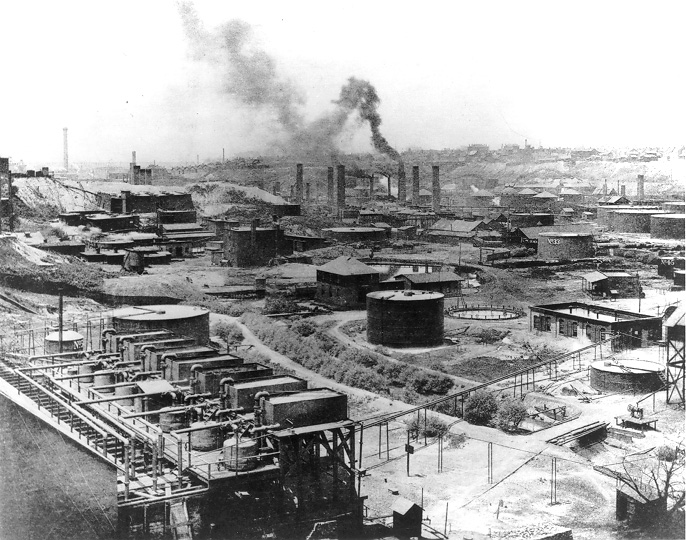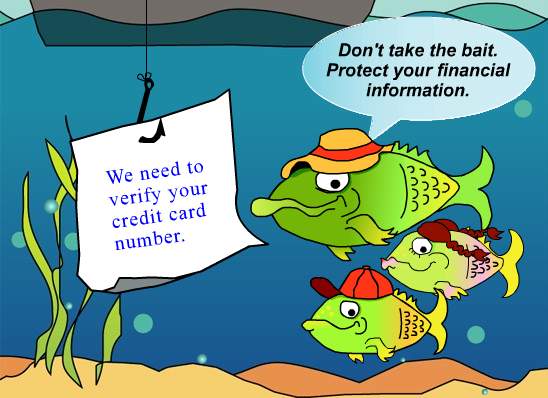 |
| Standard Oil Refinery No. 1 in Cleveland, Ohio, 1899 |
Focus Question: What laws and regulations have been created to promote competition among businesses?
The United States has enacted a body of antitrust laws over time to maintain fair competition. These laws protect consumers by making illegal business practices intended to create monopolies and encourage competition to benefit consumers. For example, agreements between firms to fix prices are illegal, as well as intentionally dividing up markets geographically.
In 1887, the Interstate Commerce Act gave the federal government more control of big businesses, something previously in state jurisdiction.
The Sherman Anti-Trust Act of 1890 was the first federal statute that limited cartels and monopolies.
The Clayton Antitrust Act of 1914 specified which anti-competitive behavior by businesses was illegal and outlines enforcement practices.

The Federal Trade Commission Act of 1914 enacted the Federal Trade Commission, a body of five members, appointed by the president for seven year terms, whose aim is to enforce antitrust laws.
The Robinson-Patman Act of 1936, also known as the Anti-Price Discrimination Act, and prevents companies from changing prices for different consumers. The law was aimed at companies that sold goods at lower prices to chain stores than other retailers.
The Celler-Kefauver Act of 1950 is also known as the Anti-Merger Act. It prevents vertical and conglomerate mergers that occurred when a business bought a competitor's assets through a loophole in the Clayton Antitrust Act.
Modern Applications
The Sherman Antitrust Act and other successive rulings pertinent to the topic of antitrust law have been revisited more recently in light of new technologies and markets opening up in the free enterprise system.
- The most notable of these has been the personal computer/ consumer technology departments, with companies like Apple and Microsoft and innovators like Bill Gates and the late Steve Jobs at the forefront.
- Microsoft came under fire for violating basic provisions of the Sherman Antitrust in 1998, however, and founder and CEO Bill Gates testified at the Supreme Court hearing for United States vs. Microsoft.
- The case became a prime example of the new and expanding uncertain terrain of "intellectual property", and received considerable media and scholarly attention. Economists like Milton Friedman lamented the incursion of governmental control into an arena previously beyond the reach of such legislation, while others felt a virtual monopoly was as illegal as any other business having such.
- The case even spawned a film, "Antitrust" based on the events with a generic company name as a clear Microsoft stand-in and a villainous CEO, but it was not well received, with Roger Ebert calling the clear insinuations of a Microsoft/Bill Gates connection almost "libelous" (review here).
- For a more scholarly examination of the impacts of the ruling, see an article from the (former) Progress & Freedom Foundation here.
You can view the United States Department of Justice's Antitrust Division website here.
Professor Dominick T. Armentano and then Congressman Ron Paul discuss anti-trust and monopoly in a 1983 television program. This provides a good background on antitrust laws and the debate on their usefulness.
 Here is a lesson plan aimed at high school students, following California state teaching standards, about antitrust laws.
Here is a lesson plan aimed at high school students, following California state teaching standards, about antitrust laws.
 The Federal Trade Commission hosts several lesson plans about competition, designed for younger students.
The Federal Trade Commission hosts several lesson plans about competition, designed for younger students.
Here is documentation of changes made in Competition Laws and Policy in the United States made between October 2001 and September 2002
From Public Knowledge website, a database for open expression of the internet and net neutrality, provides an article on American Competition Policy and AntiTrust Laws
A video from the Yale Insight, a publication from Yale's Business School, about the relevancy of AntiTrust laws in our nation
Comments (0)
You don't have permission to comment on this page.